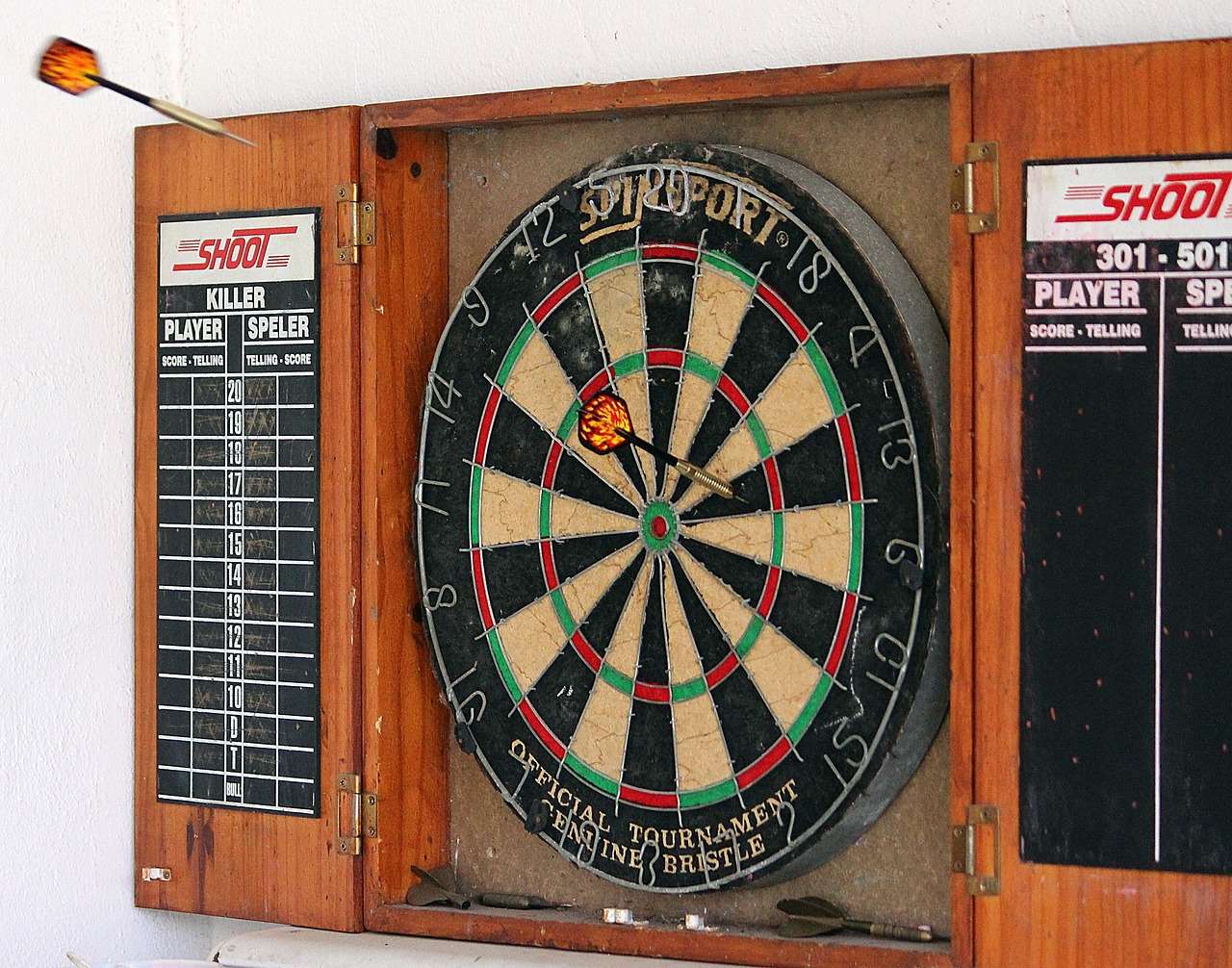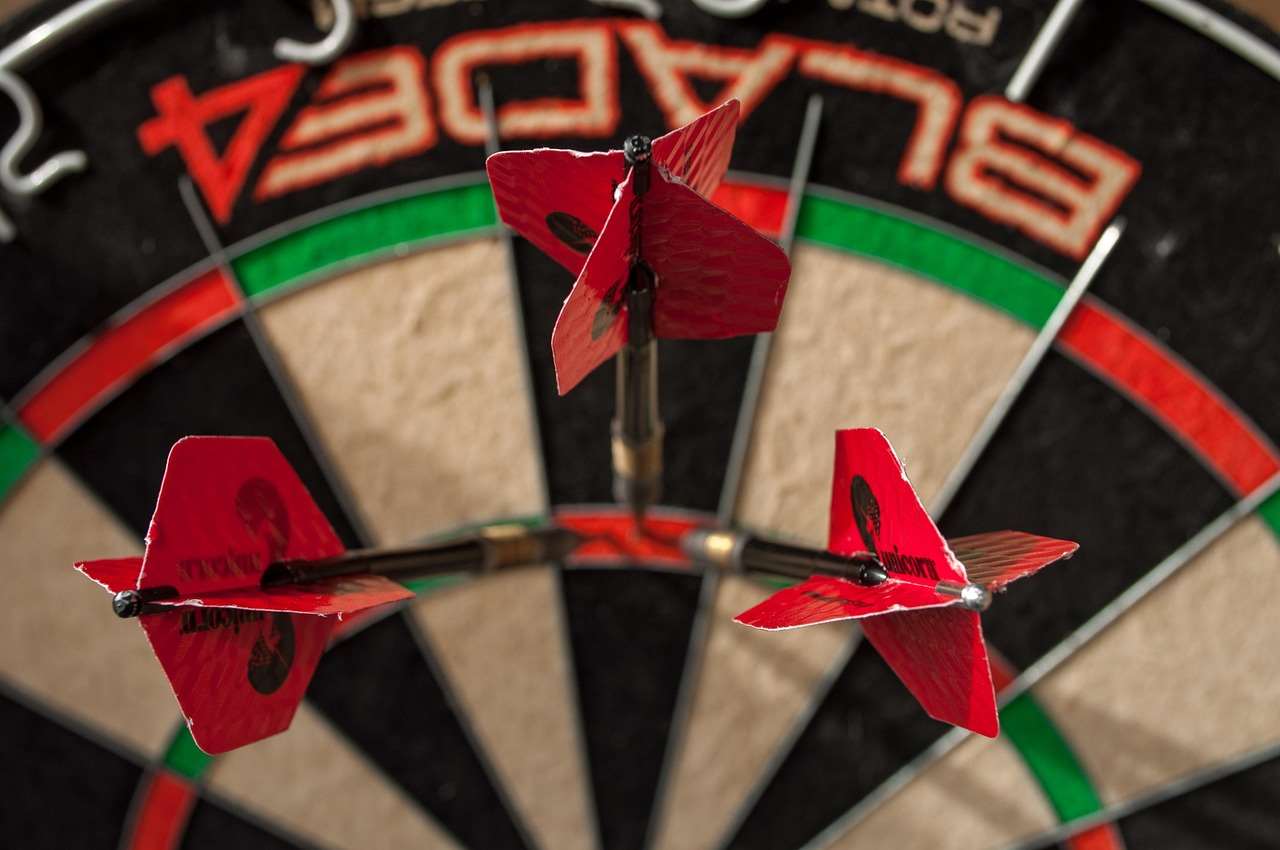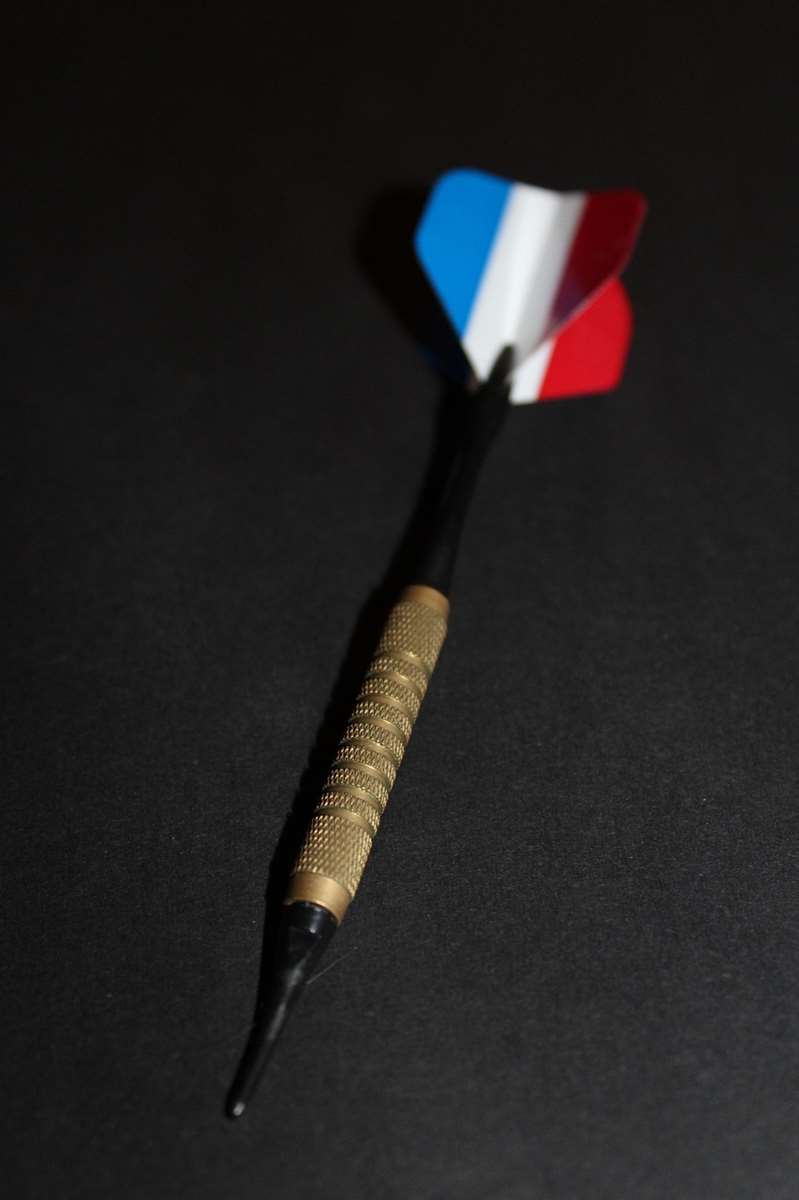Mastering fantasy darts requires strategic thinking and a deep understanding of the players. This guide reveals crucial Fantasy Darts Education Resources to help you build a winning team. You’ll discover where to find player stats, form analysis tools, and expert insights to elevate your fantasy darts game.
⚠️ Still Using Pen & Paper (or a Chalkboard)?! ⚠️
Step into the future! The Dart Counter App handles all the scoring, suggests checkouts, and tracks your stats automatically. It's easier than you think!
Try the Smart Dart Counter App FREE!Ready for an upgrade? Click above!
Understanding the Basics of Fantasy Darts
Before diving into advanced strategies, it’s crucial to grasp the fundamental concepts of fantasy darts. This involves understanding how points are awarded, the different types of leagues available, and the various player roles within a fantasy team. Knowing these basics will provide a solid foundation for building a successful strategy. Many leagues follow a similar scoring system to traditional fantasy sports, with points awarded for wins, 180s, high checkouts, and legs won. Familiarizing yourself with the specific rules of your chosen league is paramount.
Consider the different league formats. Are you participating in a season-long league, a weekly contest, or a head-to-head competition? Each format demands a different approach to team selection and player management. Season-long leagues require a more strategic, long-term perspective, while weekly contests often reward riskier, high-ceiling players. Understanding these nuances is vital for optimizing your performance.
Also, don’t underestimate the importance of budget management. Most fantasy darts leagues operate with a salary cap, forcing you to make tough choices about which players to include in your team. Prioritize players who offer the best value for their price, considering their recent form, historical performance, and upcoming matchups. Effective budget allocation is a key skill in fantasy darts.

Key Fantasy Darts Education Resources Online
The internet is a treasure trove of information for fantasy darts enthusiasts. Numerous websites and platforms offer valuable data, analysis, and insights to help you make informed decisions. Identifying the right resources and knowing how to use them effectively is crucial for gaining a competitive edge. Here are some essential online resources:
- Official Tournament Websites: The official websites of major darts tournaments, such as the PDC (Professional Darts Corporation), are invaluable sources of information. They provide real-time scores, match schedules, player profiles, and tournament news. Analyzing this information can help you track player performance and identify potential breakout stars.
- Darts Statistics Websites: Websites dedicated to darts statistics offer a wealth of data on player performance, including averages, checkout percentages, 180s per leg, and head-to-head records. This information is essential for assessing player form and predicting future performance.
- Fantasy Sports Platforms: Many fantasy sports platforms offer dedicated darts leagues, providing a user-friendly interface for managing your team, tracking scores, and competing against other players. These platforms often include built-in research tools and player analysis features.
- Darts News and Analysis Websites: Stay up-to-date with the latest darts news and analysis by following reputable darts news websites and blogs. These sources often provide expert insights on player form, tournament previews, and fantasy darts strategy.
- Social Media: Follow darts players, analysts, and commentators on social media platforms like Twitter and Facebook for real-time updates, insights, and opinions. Social media can be a valuable source of information, but be sure to verify the credibility of the source.
Remember to critically evaluate the information you find online and cross-reference data from multiple sources to ensure accuracy. Developing a discerning eye for reliable information is crucial for making informed decisions in fantasy darts.
Leveraging Darts Statistics for Fantasy Success
Darts statistics are the lifeblood of fantasy darts. Understanding and interpreting these statistics is crucial for identifying undervalued players and predicting future performance. Here are some key statistics to focus on:
- Average: A player’s average score per three darts is a primary indicator of their overall performance. A higher average generally indicates a more consistent and accurate player.
- Checkout Percentage: A player’s checkout percentage reflects their ability to finish legs consistently. A high checkout percentage is a sign of composure and skill under pressure.
- 180s Per Leg: The number of 180s a player hits per leg indicates their scoring power. Players who consistently hit 180s are valuable assets in fantasy darts leagues that award points for maximums.
- First 9 Dart Average: This statistic shows how well a player starts a leg, reflecting their opening accuracy. A good first 9 dart average often leads to quicker legs and more scoring opportunities.
- Head-to-Head Records: Analyzing a player’s head-to-head record against specific opponents can reveal valuable insights into their matchup potential. Some players perform better against certain opponents due to stylistic differences or psychological factors.
By analyzing these statistics in conjunction with other factors, such as player form, tournament conditions, and motivation, you can gain a significant advantage in fantasy darts. Don’t rely solely on surface-level statistics; delve deeper to uncover hidden trends and insights.
Advanced Fantasy Darts Strategies
Once you’ve mastered the basics and learned how to use Fantasy Darts Education Resources effectively, it’s time to explore advanced strategies that can give you a competitive edge. These strategies involve a more nuanced understanding of player psychology, tournament dynamics, and risk management. Here are some advanced strategies to consider:
- Exploiting Matchup Advantages: Pay close attention to player matchups and identify situations where one player has a significant advantage over their opponent. This could be due to stylistic mismatches, head-to-head records, or recent form. Target players who are likely to perform well in their upcoming matches.
- Identifying Value Picks: Look for undervalued players who are poised for a breakout performance. These players may be overlooked by other fantasy managers due to recent struggles or lack of recognition. Identifying these value picks can free up salary cap space to acquire top-tier players.
- Monitoring Player Form: Track player form closely and adjust your team accordingly. Players’ form can fluctuate significantly throughout the season, so it’s important to stay informed about their recent performances, injuries, and personal circumstances.
- Hedging Your Bets: In volatile tournaments, consider hedging your bets by selecting players with contrasting styles and skillsets. This can mitigate the risk of your entire team underperforming if a particular playing style is dominant.
- Understanding Tournament Dynamics: Different tournaments have different formats and conditions, which can impact player performance. Familiarize yourself with the specific rules and dynamics of each tournament and adjust your team accordingly.
Remember that advanced strategies involve a degree of risk, so it’s important to carefully weigh the potential rewards against the potential downsides. Don’t be afraid to experiment with different strategies, but always do your research and make informed decisions.

The Importance of Player Research
Successful fantasy darts management hinges on thorough player research. This goes beyond simply looking at statistics; it involves understanding a player’s background, motivations, and mental game. Spending time researching players can reveal valuable insights that are not immediately apparent from the data.
Consider factors such as a player’s experience, their record in major tournaments, their temperament under pressure, and their personal circumstances. A player who is struggling with personal issues may be more likely to underperform, while a player who is highly motivated and confident may be poised for a breakthrough. Read articles about Darts Betting And Fantasy Leagues Guide.
Also, pay attention to player interviews and social media posts. These sources can provide valuable insights into a player’s mindset and motivation. Look for clues about their confidence level, their preparation for upcoming tournaments, and their overall attitude towards the game. This information can help you assess their potential for success.
However, be cautious about relying solely on subjective information. Player interviews and social media posts can be misleading or biased. Always cross-reference subjective information with objective data, such as statistics and performance records. A balanced approach to player research is essential for making informed decisions.
Managing Your Fantasy Darts Team
Building a successful fantasy darts team is only half the battle. You also need to effectively manage your team throughout the season. This involves making strategic trades, adjusting your lineup based on player form and matchups, and staying engaged with the league.
Be proactive in identifying potential trades that can improve your team. Look for opportunities to acquire undervalued players or to trade away players who are underperforming. Don’t be afraid to make bold moves if you believe they will benefit your team in the long run.
Regularly review your team lineup and make adjustments based on player form, matchups, and tournament conditions. Don’t be afraid to bench players who are struggling or to give opportunities to players who are showing promise. A flexible and adaptable approach to lineup management is crucial for maximizing your team’s performance.
Also, stay engaged with the league and communicate with other managers. Building relationships with other managers can open up opportunities for trades and alliances. A positive and collaborative approach to league management can enhance your overall fantasy darts experience.

The Role of Luck in Fantasy Darts
While skill and strategy are essential for success in fantasy darts, luck also plays a significant role. Unforeseen events, such as injuries, upsets, and random variance, can have a significant impact on player performance and team outcomes. It’s important to acknowledge the role of luck and to avoid becoming overly discouraged by setbacks.
Accept that you cannot control everything. Players will have bad days, upsets will happen, and injuries will occur. The key is to stay resilient and to focus on making the best decisions you can with the information available. Don’t let bad luck derail your overall strategy.
However, don’t use luck as an excuse for poor performance. While luck can play a role, it’s important to take responsibility for your own decisions and to learn from your mistakes. Analyze your performance, identify areas for improvement, and continue to refine your strategy.
Ultimately, the best approach to fantasy darts is to focus on the things you can control: your research, your strategy, and your team management. By mastering these aspects of the game, you can increase your chances of success, regardless of the role of luck.
Staying Ahead of the Curve in Fantasy Darts
The world of darts is constantly evolving, with new players emerging, new strategies being developed, and new technologies being introduced. To stay ahead of the curve in fantasy darts, it’s important to be a lifelong learner and to continually seek out new knowledge and insights. Explore various Fantasy Darts Education Resources to keep your knowledge fresh.
Stay up-to-date with the latest darts news, tournament results, and player statistics. Follow reputable darts news websites, blogs, and social media accounts. Attend darts tournaments and watch matches to observe player performance firsthand. The more you immerse yourself in the world of darts, the better equipped you will be to make informed decisions in fantasy darts.
Also, be open to new ideas and strategies. Don’t be afraid to experiment with different approaches and to challenge your own assumptions. The fantasy darts landscape is constantly changing, so it’s important to be adaptable and willing to embrace new trends.
Finally, connect with other fantasy darts enthusiasts and learn from their experiences. Join online forums, participate in discussions, and share your own insights. Collaboration and knowledge sharing can accelerate your learning and help you stay ahead of the curve.

Building a Community Around Fantasy Darts
Fantasy darts is more than just a game; it’s a community. Connecting with other enthusiasts can enhance your experience, provide valuable insights, and create lasting friendships. Building a community around fantasy darts can be a rewarding and enriching experience. Understanding Betting Company Logos Player Shirts can offer a different perspective.
Join online forums and social media groups dedicated to fantasy darts. Participate in discussions, share your insights, and ask questions. These platforms can be a valuable source of information and support.
Attend darts tournaments and meet other fans in person. Darts tournaments are a great opportunity to connect with other enthusiasts, share your passion for the game, and make new friends.
Organize your own fantasy darts league with friends, family, or colleagues. Creating your own league can be a fun and engaging way to connect with people who share your interest in darts. Customize the league rules to suit your preferences and create a unique and competitive environment.
Remember that building a community takes time and effort. Be respectful of others, contribute positively to discussions, and be willing to share your knowledge and expertise. The more you invest in the community, the more you will get out of it.

Ethical Considerations in Fantasy Darts
Like any competitive activity, fantasy darts comes with ethical considerations. It’s important to play the game fairly, respect the rules, and avoid any actions that could be perceived as cheating or unethical. Maintaining a high standard of ethical conduct is essential for preserving the integrity of the game and fostering a positive community.
Adhere to the rules of your chosen league or platform. Familiarize yourself with the rules and regulations and abide by them at all times. Avoid any actions that could be considered a violation of the rules, such as collusion or data manipulation.
Respect the privacy of other players. Avoid sharing private information about other players without their consent. This includes personal details, team strategies, and trade secrets.
Avoid using inside information or privileged access to gain an unfair advantage. This includes information obtained from players, coaches, or other individuals with privileged access to information. Playing with integrity means competing on a level playing field.
Report any suspected instances of cheating or unethical behavior to the league commissioner or platform administrator. It’s important to take a stand against unethical behavior and to ensure that the game is played fairly.
Conclusion
Mastering fantasy darts requires a blend of knowledge, strategy, and a bit of luck. By utilizing available Fantasy Darts Education Resources, understanding player statistics, and employing advanced strategies, you can significantly improve your chances of success. Remember to stay informed, adapt to changing circumstances, and always play ethically. Embrace the community, share your passion, and enjoy the thrill of the game. Now, put your knowledge to the test and build your winning fantasy darts team! Take your newfound knowledge and put it into action – sign up for a fantasy darts league today and experience the excitement firsthand!
Hi, I’m Dieter, and I created Dartcounter (Dartcounterapp.com). My motivation wasn’t being a darts expert – quite the opposite! When I first started playing, I loved the game but found keeping accurate scores and tracking stats difficult and distracting.
I figured I couldn’t be the only one struggling with this. So, I decided to build a solution: an easy-to-use application that everyone, no matter their experience level, could use to manage scoring effortlessly.
My goal for Dartcounter was simple: let the app handle the numbers – the scoring, the averages, the stats, even checkout suggestions – so players could focus purely on their throw and enjoying the game. It began as a way to solve my own beginner’s problem, and I’m thrilled it has grown into a helpful tool for the wider darts community.